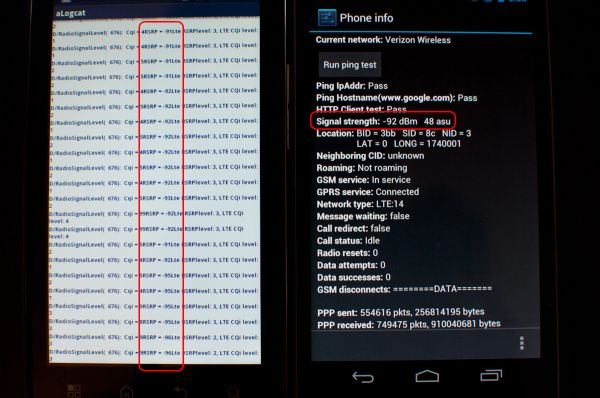Johnly
Retired Moderator
- Oct 6, 2010
- 4,916
- 319
- 0
The Verizon Galaxy Nexus is one of the most popular handsets on this website, and for good reason, it is the first Nexus device on Verizon and one of the first devices in the world to get the heavily anticipated Android 4.0 Ice Cream Sandwich, and one of the few that will run it in ?stock? form, free of carrier and OEM customization. The device itself is powerful beast, with a glorious screen. For these and other reasons this device should, at least on paper, be one of if not THE best Android phone on the market.
But the Verizon Galaxy Nexus has a pretty significant flaw, a flaw that is often completely ignored or when not ignored sidelined in favor of emphasizing the benefits of the device. That flaw is signal strength and the ability to stay on 4G. People acknowledge it but the truth of the matter is that I don?t think that people realize just how bad the problem is, including the people who run this site.
With that in mind I have been doing a little experiment over the last two weeks. I am in the rare position to own 6 of Verizon?s 4G LTE devices and have all of them on service. I chose a room at home that gets mediocre cellular reception and have been keeping track of the dBm of each device at 4 different times throughout the day. These times were different each day but in general were late night (after midnight, before I went to bed), early to mid morning (whenever I got up), afternoon, and evening. For those that do not know dBm is the true measure of cellular signal ranging from -120 (no signal whatsoever) to -60 (perfect or nearly so). The data was taken from the Status screen in the settings menu, not an app or widget to minimize the possibility of error. Each measurement was taken right after the other.
The raw data is presented below in the following graphic but here is a summary:
Code:Week 1 Average Week 2 Average Average Weeks 1&2 VZW Galaxy Nexus -101.8 -101.9 -104.3 HTC Thunderbolt -90 -90 -90.5 HTC Rezound -93.2 -93.2 -92.8 Droid RAZR -92.9 -92.9 -92.8 Droid 4 -92 -92 -93 Droid Bionic -85.3 -85.3 -85.8
All devices are running STOCK firmware and NOT rooted.
As you can see the Galaxy Nexus has by far the worst signal of the bunch. The two week average had a difference of 19 dBm between the worst (Galaxy Nexus), and the best (Droid Bionic). For a device that was so maligned I was quite surprised to see how much stronger the Bionic was than anything else in the stable. In some tests I found the difference to be nearly 30 dBm between it and the Nexus.
Now I can see some of the responses now ?he must have a defective device? but I can assure you my device gets within a 2-3 dBm difference of every other Galaxy Nexus I have had the chance to compare it to, so it?s highly unlikely.
Now before some of you decide to string me up, I want to make it clear that the purpose of this post is NOT to bash the Nexus. Remember that I do actually own one, and if I hated it that bad I would have returned it during the post holiday return period. The purpose of this is to educate people and to bring attention to a serious problem that must be fixed ASAP.
I?m a huge believer in people should buy what makes them happy and ignore the haters and device evangelists, but given the fact that I do change phones so often I am also in a position where I am not as emotionally invested in my purchases and can look at things a little more objectively than most. There are some really nice things about the Galaxy Nexus and ICS, and some things that are not so nice, and a few things that really suck ... signal strength is one of those things that really sucks. I must say that when I began this experiment I knew that there was a significant difference but had no idea that it was as pronounced as it is.
I sincerely hope that this is merely a software issue and Samsung, Verizon, and Google are able to get it straightened out in short order, because as of right now I can?t recommend anyone get the Nexus as their primary device, because a phone that doesn?t get reception when you need it is worthless.
Raw data below:
Click to view quoted image
EDIT: I said the following in a post later in the thread but I think it bares mentioning here as well:
Being a scholar I wanted to reference your material.....to bad it does not have any...going back to Panda rap...this sucks.....



